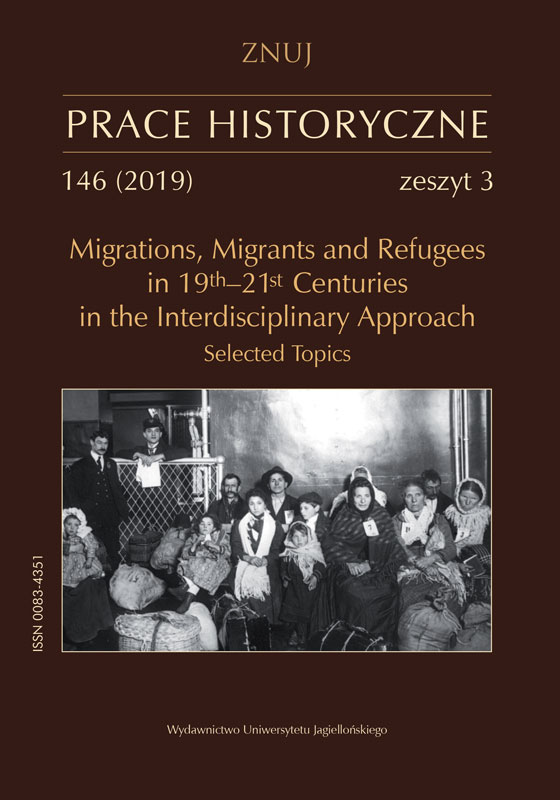The Role of the International Commission for Supervision and Control in Vietnam in the Population Exchange between Vietnamese States during Years 1954–1955
The Role of the International Commission for Supervision and Control in Vietnam in the Population Exchange between Vietnamese States during Years 1954–1955
Author(s): Jarema SłowiakSubject(s): History
Published by: Wydawnictwo Uniwersytetu Jagiellońskiego
Keywords: Geneva Agreements; International Commission for Supervision and Control; Migration; Operation Passage to Freedom; Vietnam; Vietnam War
Summary/Abstract: When Geneva Agreements dividing Vietnam were reached in the early morning hours of 21 July 1954, the Article 14(d) of those accords was considered to be a minor, technical one. It guaranteed free movement of people between opposite sides’ zones, so they could move to the half of Vietnam they preferred. The authorities in both the South and the North didn’t expect more than several tens of thousands of people. Instead, the South was fl ooded with a vast wave of refugees, numbering in hundreds of thousands. Geneva Conference also established the International Commission for Supervision and Control, composed of India, Canada and Poland, to oversee the implementation of the Geneva Accords in Indochina. One of its most important tasks was to supervise the aforementioned free movement of people. In this article, I would like to show how internal diff erences between the countries making the ICSC aff ected the supervision of Article 14(d), particularly in respect of activities of communist side, which actively tried to prevent people from leaving North Vietnam.
Journal: Prace Historyczne
- Issue Year: 146/2019
- Issue No: 3
- Page Range: 621-635
- Page Count: 15
- Language: English

